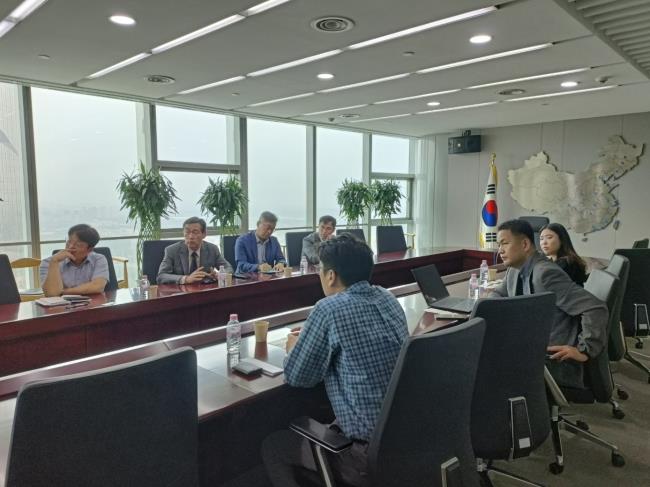Several years ago, the EU has slowly started the online dispute resolution process, namely, ONLINE DISPUTE RESOLUTION (ODR). In the ODR sector, many developments and activities have been made. Originally private companies had taken initiatives from the United States and then it was spreaded into other countries. As the process of dispute resolution in courts was too time-consuming and expensive, there was a demand for the market to resolve disputes more quickly and more economically, and the ODR to accommodate the these needs came into operation.
Korea introduced an online dispute resolution procedure called the ‘e-commerce dispute mediation committee’ and recorded great results, and its excellence is widely recognized abroad. On the other hand, why is the EU's ODR regulation and platform, which started a little late, receiving so much attention?
In particular, considering that the Internet environment in the EU is still not well developed and the Internet speed is still slow, it is negatively seen that it takes time for the successful use of ODR and institutional settlement. For example, in the case of France, although the optical cable construction work had been being carried out nationally, there was still a long way to go as the progress was still only 40% in several years ago. The implimentation of the EU's ODR can still be seen a littel far away to work out.
The reason I pay attention to the EU's ODR regulation and ODR platform is because of its potential. In the case of the United States, there are actually many ODR operating companies and they are being used a lot, but there are advantages and disadvantages and an integrated platform is insufficient because too many companies operate sporadically in a state that is entirely entrusted to the market. However, the EU's ODR regulations and platform have been accepted as a kind of integrated legal system, and furthermore, there is a lot of room for widespread use as a portal.
In other words, there is a very high possibility that it will gradually develop into a binding system in the future as there are regulations on this in the EU guidelines. And since the platform also provides a very concise, consumer-friendly environment, it has great potentials for active use in the future. In e-commerce, the effectiveness of ODR seems more likely to shine under international transactions involving multiple countries.
In the digital age, virtual reality is more likely to be more useful than the real world. Therefore, it is clear that business activities in virtual reality, which are competitive in terms of time, place, and cost, as well as dispute resolution services will become more active. In that sense, I think that the future is a virtual reality court, that is, a cyber court will become the trend of the times. In preparation for this, a national response and legal consumer-friendly ODR project should be actively promoted.
The model of the e-commerce dispute mediation committee, which is the most active in Korea, should be more generalized and expanded to be established as a general platform, and furthermore, the ODR legal system should be implemented as soon as possible. If these tasks are neglected even a little, our status as an IT powerhouse could gradually collapse. Moreover, at this point in time when the EU, which has been considered relatively backward in the IT field, is now actively starting, our response is more important than anything else.
It is also true that arbitration, which is an alternative means of dispute resolution, is now inevitably moving toward a more consumer-friendly direction than the courts that maintained the monopoly power of the past.















.jpg)

 cusco, past, future & now by IP&ART(김승열 RICHARD SUNG YOUL KIM한송온라인컨설팅센터대표이사HSOLLC)
cusco, past, future & now by IP&ART(김승열 RICHARD SUNG YOUL KIM한송온라인컨설팅센터대표이사HSOLLC)
 open, collective intelligence & OSS by IP&ART(김승열 RICHARD SUNG YOUL KIM한송온라인컨설팅센터대표이사HSOLLC)
open, collective intelligence & OSS by IP&ART(김승열 RICHARD SUNG YOUL KIM한송온라인컨설팅센터대표이사HSOLLC)
 변호사와 AI
변호사와 AI
 AI Present and Future in the Legal Fields Under the RCEP
AI Present and Future in the Legal Fields Under the RCEP
